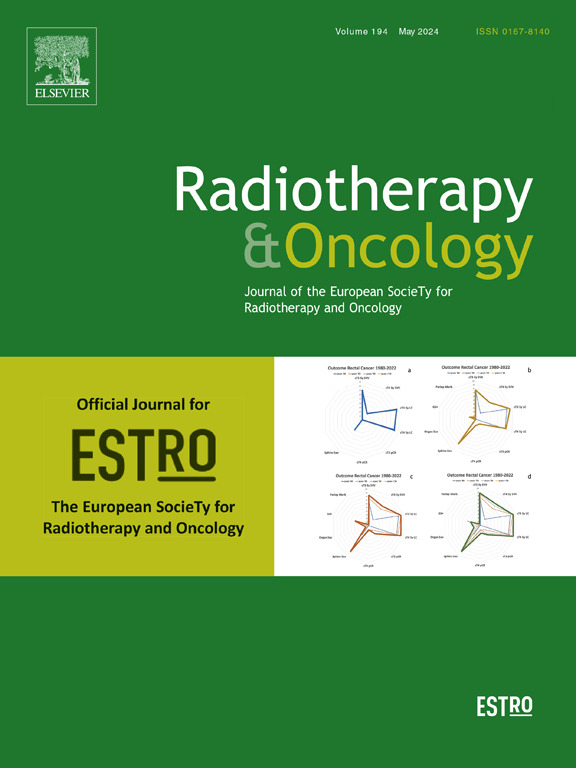孤独终老吗?调查孤独作为癌症死亡的风险因素
IF 5.3
1区 医学
Q1 ONCOLOGY
引用次数: 0
摘要
目的:孤独和社会孤立会对癌症患者的旅程产生深远的情感和心理影响。越来越多的证据表明,孤独对这一弱势群体的癌症结局和生存也有不利影响。这可能是由于各种各样的生物、心理和社会因素,从获得治疗的能力受损到孤独对免疫系统的影响。我们进行了迄今为止第一次系统回顾和荟萃分析,以调查癌症人群中孤独和社会隔离与死亡率的关系。材料和方法:我们系统地检索了MEDLINE, Embase和PsycINFO从成立到2024年9月13日,关于孤独或社会隔离对癌症患者全因死亡率和癌症死亡率影响的研究报告。三位审稿人使用预定义的资格标准独立筛选标题、摘要和全文,并通过协商一致解决差异。使用标准化表格进行数据提取和偏倚风险评估。随机效应荟萃分析用于检验孤独/社会隔离与全因死亡率和癌症死亡率之间的关系。结果:在12602次引用中,16项研究符合资格标准,13项纳入meta分析。其中8项是前瞻性研究,8项是回顾性研究,9项研究评估癌症死亡率,12项研究调查全因死亡率。社会隔离和孤独感最常用的测量方法是社会网络指数、社会整合指数和加州大学洛杉矶分校孤独量表。中位样本量为6249人,参与者的平均年龄为63岁。荟萃分析显示,孤独/社会隔离可能会增加全因死亡的风险,但证据确定性较低(风险比[HR] [95% CI] = 1.34 [1.26-1.42], p<0.001)。同样,我们发现孤独/社会隔离可能会增加癌症特异性死亡率的风险,但证据确定性较低(HR [95% CI] = 1.14 [1.04-1.25], p=0.005)。结论:我们的综述提供的证据表明,在癌症患者中,孤独和社会隔离可能与全因死亡率和癌症特异性死亡率的风险增加有关。这些发现支持将心理社会评估和有针对性的干预措施纳入癌症治疗以改善患者预后的必要性。本文章由计算机程序翻译,如有差异,请以英文原文为准。
DYING ALONE? INVESTIGATING LONELINESS AS A RISK FACTOR FOR CANCER MORTALITY
Purpose:
Loneliness and social isolation can adversely affect the cancer patient journey with profound emotional and psychological impact. Accruing evidence suggests loneliness also has adverse effects on cancer outcomes and survival in this vulnerable population. This may be due to a variety of biological, psychological, and social factors, from impaired ability to access treatment to effects of loneliness on the immune system. We conducted the first systematic review and meta-analysis to date to investigate mortality in relation to loneliness and social isolation among cancer populations.
Materials and Methods:
We systematically searched MEDLINE, Embase, and PsycINFO from inception to September 13, 2024, for studies that report on the impact of loneliness or social isolation on all-cause and cancer mortality in cancer patients. Three reviewers independently screened titles, abstracts, and full texts using predefined eligibility criteria, with discrepancies resolved by consensus. Data extraction and risk of bias assessment was conducted using a standardized form. Random-effects meta-analysis was used to examine the association between loneliness/ social isolation with all-cause and cancer mortality.
Results:
Of 12,602 citations, 16 studies met eligibility criteria and 13 were included in the meta-analysis. Of these, 8 were prospective while 8 were retrospective, and 9 studies assessed cancer mortality while 12 examined all-cause mortality. Social isolation and loneliness were most commonly measured using the Social Network Index, Social Integration Index, and UCLA Loneliness Scale. The median sample size was 6,249, and the mean age of participants was 63 years. Meta-analysis demonstrated loneliness/social isolation may increase the risk of all-cause mortality with low certainty of evidence (hazard ratio [HR] [95% CI] = 1.34 [1.26–1.42], p<0.001). Similarly, we found loneliness/social isolation may increase the risk of cancer-specific mortality with low certainty of evidence (HR [95% CI] = 1.14 [1.04–1.25], p=0.005).
Conclusions:
Our review provides evidence that among cancer patients, loneliness and social isolation may be associated with increased risk in all-cause and cancer-specific mortality. These findings support the need to incorporate psychosocial assessments and targeted interventions into cancer care to improve patient outcomes.
求助全文
通过发布文献求助,成功后即可免费获取论文全文。
去求助
来源期刊

Radiotherapy and Oncology
医学-核医学
CiteScore
10.30
自引率
10.50%
发文量
2445
审稿时长
45 days
期刊介绍:
Radiotherapy and Oncology publishes papers describing original research as well as review articles. It covers areas of interest relating to radiation oncology. This includes: clinical radiotherapy, combined modality treatment, translational studies, epidemiological outcomes, imaging, dosimetry, and radiation therapy planning, experimental work in radiobiology, chemobiology, hyperthermia and tumour biology, as well as data science in radiation oncology and physics aspects relevant to oncology.Papers on more general aspects of interest to the radiation oncologist including chemotherapy, surgery and immunology are also published.
 求助内容:
求助内容: 应助结果提醒方式:
应助结果提醒方式:


